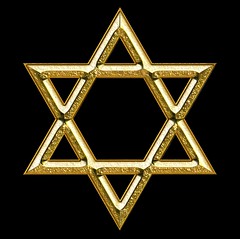AP World History 1 Chapter 4 Vocab Flashcards
Terms : Hide Images [1]
| 8417398774 | Bhagavad Gita | A great Hindu epic text, part of the much larger Mahabharata, which affirms the performance of caste duties as a path to religious liberation. (pron. BAH-gah-vahd GHEE-tah) |  | 0 |
| 8417406694 | Confucianism | The Chinese philosophy first enunciated by Confucius, advocating the moral example of superiors as the key element of social order. |  | 1 |
| 8417413930 | Daoism | A Chinese philosophy/popular religion that advocates simplicity and understanding of the world of nature, founded by the legendary figure Laozi. (pron. dow-ism) |  | 2 |
| 8417421494 | Greek rationalism | A secularizing system of scientific and philosophic thought that developed in classical Greece in the period 600 to 300 B.C.E.; it emphasized the power of education and human reason to understand the world in nonreligious terms. |  | 3 |
| 8417433027 | Jesus of Nazareth | The prophet/god of Christianity (ca. 4 B.C.E.-ca. 30 C.E.). Judaism: The monotheistic religion developed by the Hebrews, emphasizing a sole personal god (Yahweh) with concerns for social justice. |  | 4 |
| 8417444767 | Judaism | The monotheistic religion developed by the Hebrews, emphasising a sole personal God (Yahweh) with concerns for social justice. |  | 5 |
| 8417454004 | Legalism | A Chinese philosophy distinguished by an adherence to clear laws with vigorous punishments. |  | 6 |
| 8417457654 | Mahayana | "Great Vehicle," the popular development of Buddhism in the early centuries of the Common Era, which gives a much greater role to supernatural beings and proved to be more popular than original (Theravada) Buddhism. (pron. mah-hah-YAH-nah) |  | 7 |
| 8417466169 | moksha | In Hindu belief, liberation from separate existence and union with Brahman. (pron. mokeshuh) |  | 8 |
| 8417479875 | nirvana | The end goal of Buddhism, in which individual identity is "extinguished" into a state of serenity and great compassion. (pron. neer-VAH-nah) |  | 9 |
| 8417486741 | Saint Paul | The first great popularizer of Christianity (10-65 C.E.). |  | 10 |
| 8417493431 | Siddhartha Gautama (the Buddha) | The Indian prince turned ascetic (ca. 566-ca. 486 B.C.E.) who founded Buddhism. (pron. sidd-ARTH-uh gow-TAHM-uh) |  | 11 |
| 8417497068 | Socrates | The first great Greek philosopher to turn rationalism toward questions of human existence (469-399 B.C.E.). |  | 12 |
| 8417503566 | Theravada | The Teaching of the Elders," the early form of Buddhism according to which the Buddha was a wise teacher but not divine and which emphasizes practices rather than beliefs. (pron. THAIR-ah-VAH-dah) |  | 13 |
| 8417506721 | Upanishads | Indian mystical and philosophical works, written between 800 and 400 B.C.E. (pron. ooh-PAHN-ish-ahds) |  | 14 |
| 8417512953 | Vedas | The earliest religious texts of India, a collection of ancient poems, hymns, and rituals that were transmitted orally before being written down ca. 600 B.C.E. (pron.VAY-dahs) |  | 15 |
| 8417516661 | Zoroastrianism | Persian monotheistic religion founded by the prophet Zarathustra. (pron. zor- oh-AST-ree-an-ism) |  | 16 |
